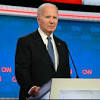The Washington Post opinion editor approved a Harris endorsement ...

Sign up for The Media Today, CJR’s daily newsletter.
On Friday, the Washington Post’s publisher, Will Lewis, announced that the paper would no longer make endorsements for president—after its journalists had already drafted an endorsement of Vice President Kamala Harris. The decision was made by Jeff Bezos, the paper’s owner.
Over a period of several weeks, a Post staffer told me, two Post board members, Charles Lane and Stephen W. Stromberg, had worked on drafts of a Harris endorsement. (Neither was contacted for this article.) “Normally we’d have had a meeting, review a draft, make suggestions, do editing,” the staffer told me. Editorial writers started to feel angsty a few weeks ago, per the staffer; the process stalled. Around a week ago, editorial page editor David Shipley told the editorial board that the endorsement was on track, adding that “this is obviously something our owner has an interest in.”
“We thought we were dickering over language—not over whether there would be an endorsement,” the Post staffer said. So journalists at the Post, in both the news and opinion departments, were stunned Friday after Shipley told the editorial board at a meeting that it would not take a position after all. This represents the first time the Post has sat out a presidential endorsement since 1988.
The meeting was quickly followed by an opinion essay from publisher Lewis, who wrote, “We recognize that this will be read in a range of ways, including as a tacit endorsement of one candidate, or as a condemnation of another, or as an abdication of responsibility. That is inevitable. We don’t see it that way.” In a news story, the Post made clear that the decision came from Bezos.
NPR reported that management had known for weeks that there would be no endorsement, and that Shipley, in breaking the news to his staff on Thursday, said he “owns” the decision. However, my source disputed that account, saying that Shipley very much seemed on board with the endorsement and that the decision to pull it appeared to have been made within the past few days.
The move follows one by my former colleague Mariel Garza, who resigned on Wednesday from her position as the editorials editor at the Los Angeles Times in protest of a decision by Patrick Soon-Shiong, the publisher, to block the editorial board’s plan to endorse Harris. The Times did not make presidential endorsements from 1976 through 2004 but resumed the practice in 2008 and endorsed Democrats in the past four elections.
The decisions at both newspapers have angered staff members, who point out that both papers have published editorials for more than nine years now describing the threats Donald Trump poses to American democracy; his constant stream of falsehoods; his role in the January 6, 2021, attack on the Capitol; his public policies; and his promises to be a dictator—for one day, at least—if elected.
Ian Bassin, a democracy expert, calls these moves “anticipatory obedience”: fear by owners that if Trump wins he could take vengeance on companies that cross him. They noted that the leadership at CNN and the Post changed after the Trump administration tried to block the takeover of CNN’s parent company and tried to deny a cloud computing contract for Amazon, Bezos’s company.
Bezos bought the Post in 2013, from the Graham family, for $250 million. Soon-Shiong bought the Times in 2018, from the Tribune Company, for $500 million. Both billionaires initially attracted praise but have since come under fire. Neither paper managed to be a breakout economic success; both have had layoffs. In each newsroom, respected editors were brought in (Sally Buzbee at the Post, Norman Pearlstine and Kevin Merida at the Times) only to later leave under pressure or in frustration.
Martin Baron, who edited the Post from 2012 to 2021, winning wide acclaim for his leadership of the newsroom during the Trump presidency, issued a statement to NPR denouncing the last-minute decision to withhold an endorsement. “This is cowardice, a moment of darkness that will leave democracy as a casualty,” he said. “Donald Trump will celebrate this as an invitation to further intimidate the Post’s owner, Jeff Bezos (and other media owners). History will mark a disturbing chapter of spinelessness at an institution famed for courage.”
Opting against endorsements has drawn harsh scrutiny on social media. Many readers—more than thirteen hundred at the Times and around two thousand at the Post, according to a report by Semafor—have canceled subscriptions. Others have asked (reasonably, in my view) why newspapers endorse candidates at all—and whether endorsements have a negative influence on the balance and objectivity they expect from news coverage.
The most serious allegation, though, is that Soon-Shiong and Bezos are trying to hedge their bets out of fear that their business interests could be harmed during a second Trump presidency. Soon-Shiong, who made his fortune as a biopharmaceutical innovator, is working on new drugs that would presumably require FDA approval. Amazon faces an antitrust lawsuit, brought last year by the Biden administration, that will take years to litigate or settle.
There is one difference between the situations at the Times and the Post. The Times has provided no explanation of its decision not to make a presidential endorsement, nor has it reported on the resignations of Garza, Robert Greene, and Karin Klein—all editorial writers whom I oversaw when I served as editorial page editor of the Times in 2020 and 2021. In several confusing tweets, Soon-Shiong and his daughter Nika attempted to explain what happened. Soon-Shiong asserted that he had asked the editorial board to write a nonpartisan, side-by-side analysis of where the candidates stood on various issues, and that the editorial board chose to remain silent—an account that Garza denies. (On X, Elon Musk replied to Soon-Shiong: “Makes sense.”) Then, Nika wrote on X that she agreed with the editorial board’s “decision”—in her characterization—but attributed it to the “genocide” going on in Gaza, arguing that the Biden-Harris administration hasn’t done enough to rein in Israel’s military intervention, which has claimed thousands in casualties. The tweets left Times staffers uncertain whether Musk, pro-Palestinian peace activism, or some other force was driving the decision.
In contrast, Lewis portrayed the Post’s decision as “returning to our roots,” though the paper’s practices, over the years, have been inconsistent. It endorsed Dwight Eisenhower in 1952, but declined to make an endorsement of either Richard Nixon or John F. Kennedy in 1960. In 1976, it endorsed Jimmy Carter. Lewis wrote of Friday’s decision: “We see it as consistent with the values the Post has always stood for and what we hope for in a leader: character and courage in service to the American ethic, veneration for the rule of law, and respect for human freedom in all its aspects. We also see it as a statement in support of our readers’ ability to make up their own minds on this, the most consequential of American decisions—whom to vote for as the next president.”
It was a far more coherent statement than anything the Times has offered. But in both newsrooms, journalists’ unions have expressed outrage. “We are deeply concerned about our owner’s decision to block a planned endorsement in the presidential race,” the Los Angeles Times Guild said. “We are even more concerned that he is now unfairly assigning blame to editorial members for his decision not to endorse.”
The Washington Post Guild was not buying their boss’s logic. “The message from our chief executive, Will Lewis—not from the editorial board itself—makes us concerned that management interfered with the work of our members in editorial,” the union said. “According to your own reporters and Guild members, an endorsement for Harris was already drafted, and the decision not to publish was made by the Post’s owner, Jeff Bezos. We are already seeing cancellations from once-loyal readers. This decision undercuts the work of our members at a time when we should be building our readers’ trust, not losing it.”
Sewell Chan joined the Columbia Journalism Review as executive editor in 2024. Previously, he was editor in chief of the Texas Tribune from 2021 to 2024, during which the nonprofit newsroom won its first National Magazine Award and was a Pulitzer finalist for the first time. From 2018 to 2021, he was a deputy managing editor and then the editorial page editor at the Los Angeles Times, where he oversaw coverage that was awarded a Pulitzer Prize for editorial writing. Chan worked at the New York Times from 2004 to 2018, as a metro reporter, Washington correspondent, deputy op-ed editor, and international news editor. He began his career as a local reporter at the Washington Post in 2000.

 United States
United States Argentina
Argentina  Australia
Australia  Austria
Austria  Brazil
Brazil  Canada
Canada  Chile
Chile  Czechia
Czechia  France
France  Germany
Germany  Greece
Greece  Italy
Italy  Mexico
Mexico  New Zealand
New Zealand  Nigeria
Nigeria  Norway
Norway  Poland
Poland  Portugal
Portugal  Sweden
Sweden  Switzerland
Switzerland  United Kingdom
United Kingdom 




























